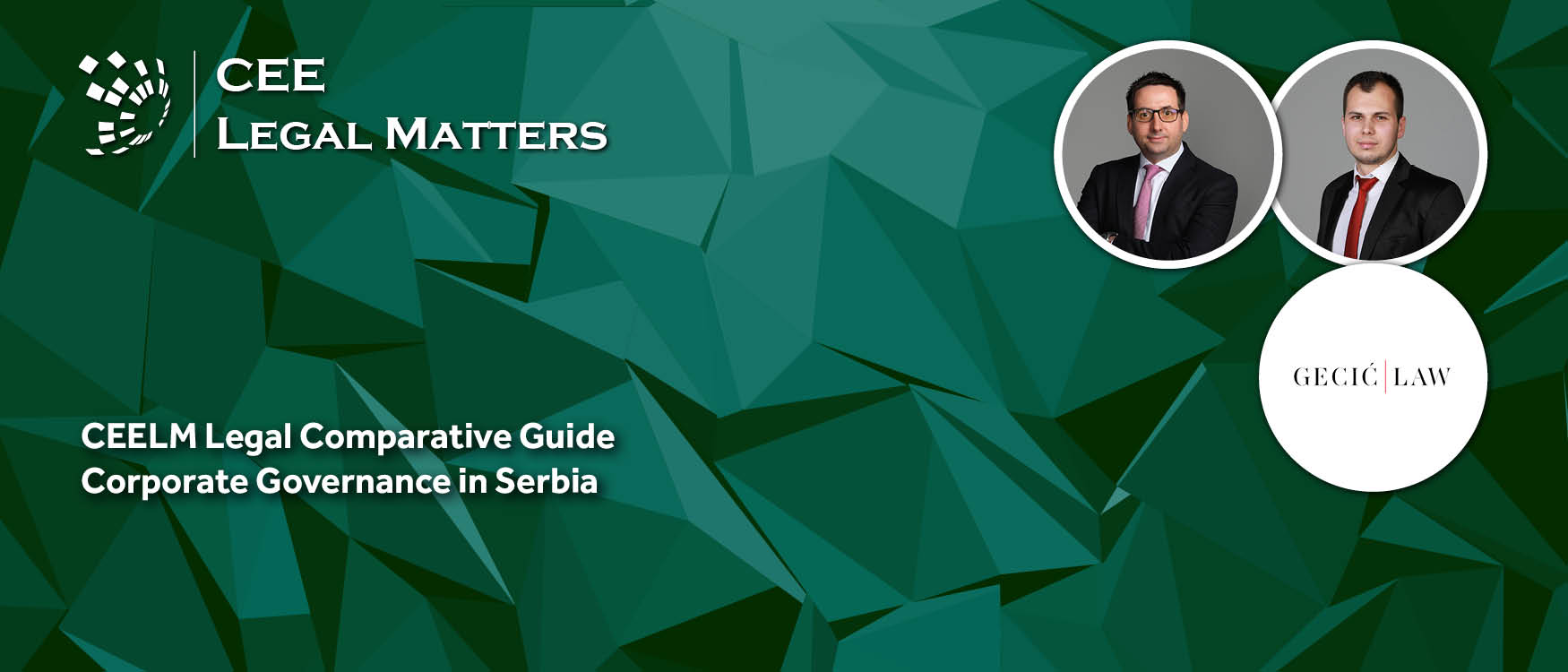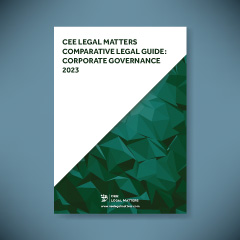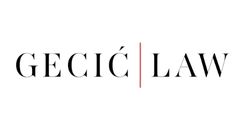Contributed by Gecic Law.
1. Corporate Structure Of The Companies
1.1. General Legal Framework
As per the Companies Act, businesses (regardless of their size small, medium, or large) may be organized through a one-tier or two-tier corporate governance system. Companies organized on a one-tier basis have a Shareholders’ Meeting and one or more Directors (Board of Directors/Executive Board) as corporate bodies. In a two-tier system, they have the Shareholders Meeting, one or more Directors (Board of Directors/Executive Board), and the Supervisory Board. It is entirely within the competencies of the founder(s) and in their sole discretion to decide which system shall be applicable.
Special laws regulate some industries, and their corporate government may differ from the general regime as per the Companies Act.
The law does not require a minimum number of shareholders when it comes to limited liability companies (drustvo sa ogranicenom odgovornoscu or d.o.o.) and joint-stock companies (akcionarsko drustvo or a.d.). In both cases, there can be a sole shareholder. There are also two other forms available for investors to establish their corporate presence in Serbia. A general partnership (ortacko drustvo or o.d.) and a limited liability partnership (komanditno drustvo or k.d.) must have at least two shareholders. Besides, there are no regulatory requirements the shareholders must meet since any natural or legal person, both local and foreign, can be a shareholder.
As to the liability, shareholder(s) of a limited liability company/joint-stock company is regularly not liable for the company’s business. However, there are two exceptions. First, the so-called piercing of the corporate veil, when limited liability rules are lifted, and the shareholder becomes fully responsible for the company’s business operations due to the abuse of limited liability rules/prerogatives. This may occur when shareholders have used the company’s assets as if they were their own to deceive creditors or shareholders deliberately for their benefit or a third party’s benefit, when a shareholder reduces the company’s assets knowing the company would not be able to meet its obligations, etc. In the case of compulsory liquidation, the controlling shareholder (who owns 50% or more of the voting rights solely or in conjunction with other shareholders who are acting together) has unlimited liability for the company’s business operations for three years following the completion of the compulsory liquidation procedure. Once the (mandatory) liquidation is completed, all shareholders are liable for the company’s business operations, limited to the amount of received liquidated assets. On the other hand, shareholders of a general partnership are liable for the company’s business. Limited liability partnership makes a specific mixture of shareholders who are regularly not liable for the company’s business operations (save to the two exceptions as mentioned hereinabove) and shareholders who are liable for the company’s business operations per law.
The criteria for distinguishing between micro, small, and medium vs. large companies are the average number of employees, annual revenues, and the value of operating assets. The classification under these criteria is performed independently by the companies on the date of preparation of financial statements. The information obtained will be used for the following financial year.
Legal entities that do not exceed two of the following criteria are classified as micro-entities:
1. The average number of employees is 10.
2. Annual business turnover of EUR 700,000.
3. The operating assets value of EUR 350,000.
Legal entities that exceed two criteria relating to micro entities and do not exceed two of the following criteria and are classified as small entities:
1. The average number of employees is 50
2. Annual business turnover of EUR 8.8 million,
3. Value of operating assets of EUR 4.4 million.
Legal entities that exceed two criteria relating to small but do not exceed two of the following criteria are classified as medium entities:
1. The average number of employees is 250
2. Annual business turnover of EUR 35 million
3. Value of operating assets of EUR 17.5 million
Legal entities that exceed two criteria relating to medium entities are classified as large entities. Under the Accounting Act, legal entities that will always be considered large entities are the Central Bank of Serbia, insurance companies, financial leasing companies, voluntary pension funds, companies managing voluntary pension funds, open-ended and closed-ended investment funds, investment fund management companies, stock exchanges, broker-dealer companies, and factoring companies.
1.2. The Function of the Supervisory Board
In the case of two-tier management, a company has a Supervisory Board with at least three members. The Supervisory Board’s main function is to supervise the company’s Directors. Since the members of the Supervisory Board are appointed/removed directly by the Shareholders’ Meeting, shareholders have direct powers and interests to ensure the competencies of the Supervisory Board. The terms of assignment, duration, and professional qualifications of the members of the Supervisory Board are prescribed by the company’s Memorandum of Association (corporate bylaws), which the Shareholders Meeting renders. This body also grants shareholders control over the Supervisory Board regarding the company’s long-term viability, strategic direction, and best interests.
Listed companies must also adhere to the corporate rules embodied in the Rules of Business Operation of the Belgrade Stock Exchange. Members of the Supervisory Board of a listed company must follow principles outlined in the Belgrade Stock Exchange Rules of Business Operation, like legality, due diligence, reliability, fair conduct, professionalism, confidentiality, prohibition of unfair competition, and so on.
Certain fiduciary duties fall on the members of the Supervisory Board, and here particularly, the duty of care requires attention. Under the duty of care, members of the Supervisory Board are obliged to exercise their corporate powers diligently, with the care of a prudent businessperson and in the reasonable belief that they are acting in the company’s best interest. A member of the Supervisory Board may owe damages to the company (or, in some cases, directly to the shareholders) for breach of the duty of care. The company or any of its shareholders may sue a Supervisory board member for damages on behalf of the company (so-called derivative claim) or any of the shareholders on behalf of the company (so-called derivative claim).
1.3. The Function of the Executive Board
The Executive Board oversees the management of the company. Generally, the law does not prescribe specific requirements or qualifications that executive board members must meet. Even the Belgrade Stock Exchange Rules of Business Operation do not stipulate additional requirements for the Executive Board members of listed companies. The law prescribes other requirements for entities under a special regime, like banks, insurance companies, broker-dealer companies, and investment companies.
1.4. Conflicts of Interest and Related Party Transactions
The duty of loyalty (avoiding conflicts of interest) falls onto the directors and other legal representatives of the company, but also significant shareholders (those who own 25% or more voting rights, solely or in conjunction with other shareholders who are acting together) or controlling shareholders (those who own 50% or more voting rights solely or in conjunction with other shareholders who are acting together). A person is prohibited from acting against the company’s interests for their own benefit or the benefit of a third party. It refers to the usage of the company’s assets, information that is not publicly available, business opportunities, and abuse of their function in the company.
They are obliged to report every company transaction where they or their related persons have a personal interest and obtain clearance from the Board of Directors/Supervisory Board to enter the transaction. A company that intends to enter a related party transaction is obliged to publicly disclose that intention on its internet presentation or in the Companies Registry of the Serbian Business Register with details of the transaction and personal interests in question immediately after receiving clearance. Moreover, according to the Companies Act, related party transactions subject to previous consent by the Board of Directors/Supervisory Board are also included in the company’s annual financial reports, publicly available in the Companies Registry held by the Serbian Business Registers Agency.
1.5. Legal Framework for Large Companies
Public Joint Stock Companies (PJSCs) are obliged to establish an Audit Committee. The primary purpose of the Audit Committee is to provide oversight of the financial reporting, the audit process, the company’s system of internal controls, and compliance with laws, standards, and regulations. The Audit Committee is responsible for the appointment, compensation, and oversight of the auditors’ work. The Audit Committee is also responsible for preparing, proposing, and overseeing the accounting and risk management policies.
2. Corporate Governance Framework
2.1. Transparency and Public Disclosures
In line with the Companies Act, PJSCs are obliged to disclose some aspects of their corporate governance structure publicly, i.e., to display certain information regarding the Board of Directors/Supervisory Board members on the internet presentation of the company and keep the information accurate and up to date. Those are the occupation and previous employment of the Board of Directors/Supervisory Board members, as well as information on whether they are currently members of the Board in other companies and, if so, what function they perform there.
According to the Companies Act of Serbia, the Shareholders’ decisions of non-listed companies do not need to be publicly disclosed. It is at the company’s discretion whether they will publish those decisions. On the other hand, some PJSCs are obliged, under the Companies Act, to disclose the minutes and decisions of the Shareholders’ Meeting publicly and voting results, i.e., to display that on the web page of the company within three days after the meeting for at least 30 days.
PJSCs are also governed by the Capitals Markets Act and, therefore, subject to specific public disclosure requirements (of financial statements, time, place, and agenda of the Shareholders’ Meetings). Moreover, companies listed on the Belgrade Stock Exchange are subject to its Rules of Business Operation and hence obliged to publicly disclose.
According to the Companies Act, a company is not obliged to disclose the Supervisory Board decisions publicly, but it is instead at the company’s sole discretion decision. Here should be raised the importance of business secrets protection. The legislation defines what information enjoys protection as a business secret and under which conditions. Not all confidential information is considered a business secret. A significant new development requires that the holder of a business secret has taken reasonable measures to preserve its confidentiality. In other words – if a company does not protect its business secret by itself, no legal protection will be provided by the law. The confidentiality agreement would be a reasonable measure of protection. The second condition is that the information is not generally known or readily accessible to persons who usually encounter it during their activities. Finally, the data must have commercial value. A clear distinction between legal and illegal means of acquiring/disposing of a business secret is made by precisely listing these cases.
2.2. Public Authorities Responsible for Monitoring Corporate Governance
The Chamber of Commerce and Industry of Serbia adopted the Corporate Governance Code, which targets all companies in Serbia. It is predominantly based on EU best practices and OECD principles. The principles and recommendations contained in this code are not binding. Still, they are recommended to all companies, particularly to the Serbian Chamber of Commerce members, as the best practice in corporate governance. Companies may directly implement the principles and recommendations of the code by adopting a decision of the competent body of the company or, if needed, elaborate them by adopting their own corporate governance code or by adopting other internal bylaws of the company.
The Corporate Governance Code of the Belgrade Stock Exchange also sets rules and principles to improve corporate governance practices. This is particularly expressed in the structure of the code through the recommendations based on the comply or explain rule and provisions indicating more closely the desirable practice of corporate governance and methods for an efficient realization of the recommendations’ objectives. The implementation of the code is based on the voluntary principle and said comply or explain rule. Since the code is based on the outdated Companies Act (2004), effective implementation of the code shall follow its synchronization with the Companies Act of Serbia (2011) or by adopting a fresh Belgrade Stock Exchange’s code.
2.3. ESG
The Accounting Act regulates non-financial reporting. Relevant companies (large companies of public interest whose average number of employees exceeds 500) must prepare a report on their activities dedicated to, among other things, environmental protection, social issues, human resources, and the application of human rights. Moreover, a company subject to financial report audits has to obtain clearance from the auditor that its non-financial report has been prepared according to the law.
The Tax Authority monitors companies concerning the Accounting Act in Serbia, hence their non-financial reporting compliance. For specific entities (banks, insurance companies, financial leasing companies, pension funds, and companies managing the voluntary pension funds), said monitoring is conducted by the Serbian central bank – the National Bank of Serbia (Ser. Narodna Banka Srbije or NBS).
2.4. Internal Controls and Fraud Measures
Every company regulates the system of internal controls through its corporate bylaws. According to the Companies Act, internal controls are not audited. However, the Audit Committee, if established, has certain powers that can be deemed interchangeable with the audit. Namely, the company’s Internal Controller regularly reports to the Audit Committee (if not appointed, then to the Board of Directors in one-tier companies, i.e., the Supervisory Board in two-tier companies) on performed internal controls.
It is in the company’s sole competencies to define the manner and organization of internal control (kindly see immediately above). PJSCs‘ duty in this regard is leveled up. Namely, the Companies Act of Serbia prescribes that PJSCs set out criteria for the appointment of the company’s Internal Controller(s) (including professional knowledge and experience), where at least one must meet strict conditions set out for Internal Auditors in line with the Accounting Act of Serbia.
3. Shareholder And Board Committees
3.1. What Committees Are Prescribed by Law?
Under the Companies Act, the Board of Directors/Supervisory Board of a joint stock/limited liability company may establish one or more Committees. Committees assist the members of the Board in exercising corporate activities (preparing decisions to be enacted by the Board, monitoring the implementation of the Board’s decisions, and conducting expert work for the Board’s purposes). The Companies Act regulates the following Committees: (i) Audit Committee, (ii) Appointment Committee, and (iii) Remunerations Committee. Other Committees may also be constituted (e.g., Executive Committee, Sustainability Committee, Corporate Governance Committee, Risk Committee).
3.2. What Committees Are Mandatory for Large Companies?
Only PJCSs are obliged to establish the Audit Committee.
3.3. Remuneration of Supervisory and Executive Board Members
The Shareholders’ Meeting of the company decides on the remuneration of Supervisory and Executive Board members. The Shareholders’ Meeting of a PJSC also decides on remuneration policies and reports.
A Remuneration Committee is not mandatory. The only mandatory is the Audit Committee of a PJSC.
Once a year, the Board of Directors (one-tier companies)/Supervisory Board (two-tier companies), or Remuneration Committee, if established, of a Joint Stock Company renders a clear and comprehensive report on remunerations that the company or its affiliates paid or is obliged to pay to every single, present, or past, member of the Board. The report is made in the current year for the previous one. Joint Stock Companies are obliged to disclose this report on their internet presence. The report must be publicly available free of charge for at least ten years as of its publishing date.





